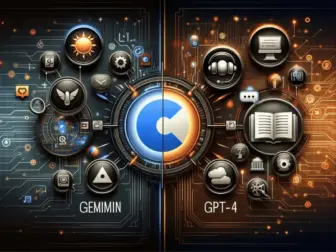Tag - AI Capabilities
Exploring the Expansive Landscape of Modern AI: Capabilities and Transformative Potentials
Exploring the Expansive Landscape of Modern AI: Capabilities and Transformative Potentials
Artificial Intelligence (AI) has transitioned from the realm of science fiction to a tangible force driving innovation across numerous industries. Its capabilities have evolved at a remarkable rate, propelling forward the boundaries of what machines can do and how they can augment human activities. The landscape of modern AI is vast, with its applications ranging from simple automations to complex problem-solving tasks that were once the exclusive domain of human intellect.
One of the foundational capabilities of AI is machine learning (ML), where algorithms learn from data, identify patterns, and make decisions with minimal human intervention. ML has led to the development of predictive analytics, enabling businesses to anticipate customer behavior and market trends. Moreover, deep learning, a subset of ML, has given rise to neural networks that simulate human brain function, providing the backbone for advancements in image and speech recognition.
Natural language processing (NLP) is another significant capability of AI. It allows machines to understand, interpret, and generate human language. This technology is the driving force behind virtual assistants, chatbots, and translation services that have become an integral part of our daily digital interactions. With NLP, AI is not only transforming customer service but also revolutionizing the way we access information and communicate with each other globally.
AI’s capacity for computer vision has led to innovations in facial recognition, medical imaging, and autonomous vehicles. By processing and interpreting visual data, AI systems can perform tasks such as identifying objects, assessing environments, and providing critical insights that augment human decision-making in fields such as healthcare, security, and transportation.
In the realm of robotics, AI capabilities have empowered machines to perform intricate tasks that require precision and adaptability. Robotic arms in manufacturing plants can learn and improve their movements over time, leading to more efficient production lines. Meanwhile, AI-powered drones are being used for a variety of purposes, from delivering goods to conducting search and rescue operations in challenging environments.
The combination of big data analytics with AI has unleashed a new wave of possibilities. By harnessing vast amounts of data and applying AI algorithms, we can uncover deep insights across various sectors including finance, healthcare, and environmental science. AI-driven data analysis is enabling us to predict disease outbreaks, optimize energy consumption, and make smarter investment decisions.
AI is also contributing to the creative industries, with capabilities that extend to music composition, art creation, and literature. By analyzing patterns in data, AI can generate novel content, providing tools for artists and writers to explore new realms of creativity. However, this raises ethical considerations about the nature of creativity and the role of AI in the creative process.
Despite its impressive capabilities, AI also presents challenges. Ethical concerns such as privacy, job displacement, and the potential for misuse need to be addressed. Moreover, there is an ongoing debate about the control and regulation of AI systems to prevent bias and ensure fairness in decision-making.
In conclusion, the capabilities of modern AI are not only transformative but also continually expanding. We are witnessing a technological revolution where AI’s role is increasingly integral in shaping the future of human endeavor. As we harness these capabilities, it is imperative that we do so with a conscientious approach, ensuring that AI benefits society as a whole and safeguards against potential risks.
